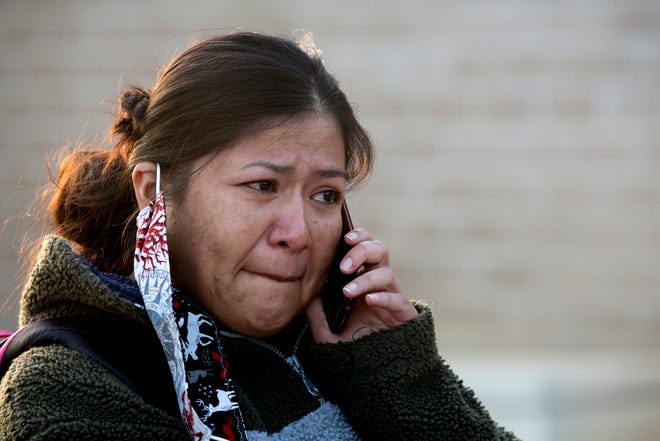
The wheels of justice can grind slowly and painfully. For Rosa Jimenez, wrongly convicted of choking a child who later died, justice took 20 years, consuming nearly half her life. It finally prevailed Monday in a Travis County courtroom.
There, Travis County District Attorney Jose P. Garza moved to dismiss the murder charge against Jimenez, saying there was no credible evidence she was responsible for the 2003 death of 21-month-old Bryan Gutierrez, who suffered a severe brain injury from oxygen deprivation while Jimenez was babysitting him. Gutierrez died three months later. On Monday, Judge Karen Sage of the 299th Judicial District Court of Texas, who overturned Jimenez’s conviction in 2021 and ordered her release from prison pending a new trial, upheld Garza’s motion to dismiss Jimenez’s murder charge. Sage apologized to Jimenez, saying the justice system failed her.
“When we fail to see that justice is done, it’s not just the accused that suffers, it’s our whole system, including the victims of tragedies and criminal acts,” Sage said. “In this case, the family of a child who died very tragically has been told for almost two decades that he passed away in a way that we now know is physically impossible, given the science.”
Forensic experts helped prompt fresh look at Jimenez case
The decision came after the Travis County District Attorney’s Office conducted an in-depth review of the evidence through its trial division and victims services and conviction integrity units. The evidence included the testimony of pediatric airway experts who concluded that the choking incident was a tragic accident. Four state and federal judges also reviewed the case and said Jimenez was likely innocent, the child’s death unintentional, and that she deserved a new trial. However, Attorney General Ken Paxton blocked it.
No parent should have to endure the loss of a child, and our hearts go out to the Gutierrez family. But that Jimenez, who had no previous criminal record or history of child abuse, was forced to sit in a prison cell for almost two decades while evidence of her innocence mounted, is a harsh reminder that the criminal justice system is not perfect. Too often, prosecutors and judges refuse to reconsider cases when new facts emerge. Fortunately for Jimenez, a New York-based group that advocates for the wrongly incarcerated took up her case in 2018, and Garza listened. Vanessa Potkin, Jimenez’s attorney and director of special litigation at The Innocence Project, told the Editorial Board that hundreds, if not thousands, of people are sitting in prison cells across the country because of wrongful murder convictions, especially in the deaths of children.
“When a child dies, it’s just a devastating tragedy, but it doesn’t always mean that somebody’s accountable, or that some unlawful conduct caused it to happen,” Potkin said.
Jimenez’s exoneration is another blow to the already battered reputation of Paxton, who refused to consider new evidence in her case or hear testimony from pediatric airways experts who disputed the prosecution’s initial assertion that Bryan Gutierrez could not have forced a large wad of paper towels into his mouth. Paxton refused to intervene even after former Travis County District Attorney Margaret Moore, who brought the charges against Jimenez, admitted that her trial was flawed.
“They (the attorney general’s office) had no desire to listen to the new evidence, and they were purely committed to procedure over substance,” Potkin told the Editorial Board. “They never would sit down and listen to the facts. In fact, they said it didn’t matter.”
Once a conviction is handed down, it’s often difficult to get district attorneys to reconsider even when new evidence warrants it. We credit Garza for his willingness to take another look at Jimenez’s case.
Jimenez needs a kidney donor, shows grace after her exoneration
Now 41, Jimenez now lives in New York City with advanced kidney disease, hoping to find viable match for a transplant. The Innocence Project has set up a web page to help her find a kidney donor.
To say that Monday morning was emotional for Jimenez is an understatement: News of her exoneration came as she scrolled through cell phone photos of her new granddaughter, who was born almost at the exact time she learned she was exonerated. Instead of lashing out at a system that wronged her, Jimenez demonstrated grace.
“I feel grateful,” Jimenez said at an impromptu New York news conference on Zoom after the hearing. “Grateful for everybody that supported me, everybody that believed in me. It’s a new life. My grandbaby just arrived five minutes ago. A new grandbaby, a new life.”
This post was originally published on this site be sure to check out more of their content.






